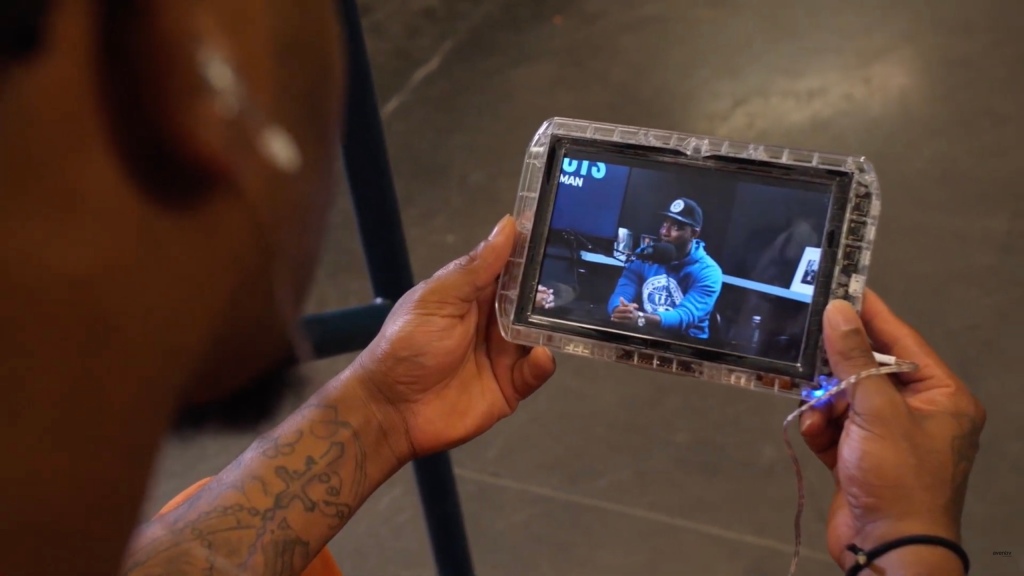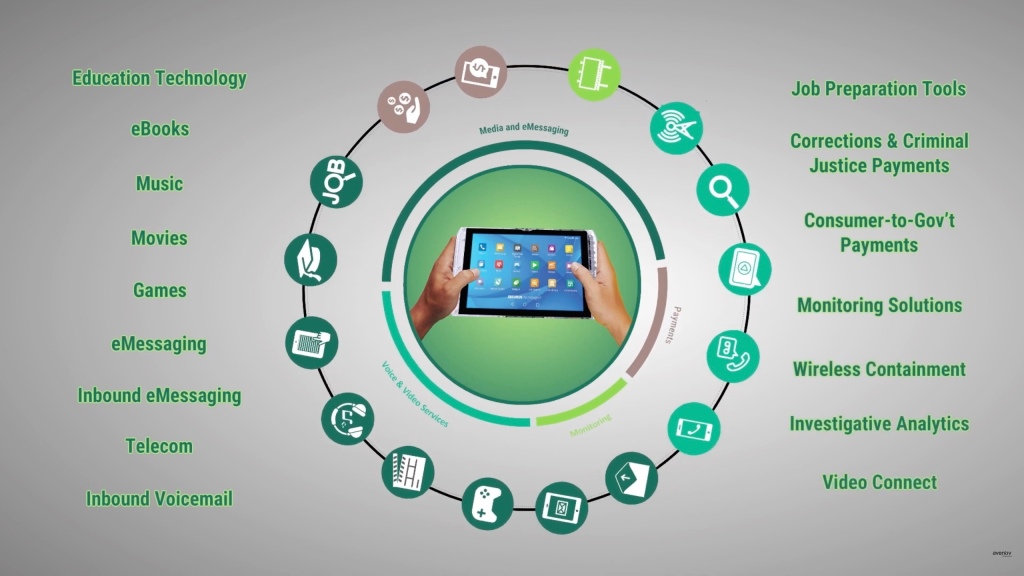Criminals stream movies, play video games and make playlists on ‘prison iPads’
Prisoners are streaming Hollywood hits, curating Spotify-style playlists and getting access to popular video games thanks to an explosion in iPad-style tablets inside institutions across the country.
One company alone is providing devices to 600,000 inmates, nearly one-third of estimated 1.9 million people in US jails and prisons.
The ubiquitous tablets, which are still growing in popularity, were highlighted by a series of topless pictures of South Carolina murderer Alex Murdaugh, who used the device to make video calls directly from his cell.
California – the nation’s second-biggest state correctional department – became the latest this month to complete a program expanding their use to 32 state prisons, including San Quentin and Folsom, where Johnny Cash made history in 1968.
Now prisoners don’t need to wait for iconic performers to hear music: among the services some versions of the tablets offer are the ability to make Spotify-like, personalized playlists culled from millions of tunes.
Supporters say the devices also help rehabilitate prisoners and cut reoffending by including educational, anti-drugs and religious content — although Murdaugh was sentenced to two consecutive life terms without parole.
Aventiv Technologies, the Dallas-based company which supplies devices to more than 600,000 inmates in 22 states and 285 county correctional facilities, said material on the tablets would cut re-offending.
“They have access to educational and job skill materials, motivation, inspiration and re-entry content that encourages skill building to prepare for and succeed at re-entry, helping reduce the current 70 percent recidivism rate,” Aventiv told The Post in a statement.


The devices are not connected to the internet or WiFi, but often over video calling, and the ability to send short and receive short video messages.
Content on Aventiv tablets includes flicks like 2022’s Shrek spin-off “Puss in Boots: The Last Wish,” Minions sequel “Despicable Me 3,” which is about a retired criminal mastermind, “Crazy Rich Asians,” “Jumanji: The Next Level,” and “Godzilla: King of Monsters.”

Inmates who use Aventiv tablets also have options to send 30-second videos or photos. Other firms like ViaPath Technologies provide free audiobooks and textbooks, while offering video calls for 20 cents per minute and premium monthly movie subscriptions for $1.99.
Also available on tablets on offer through another prison provider are a range of computer games including Fruit Blade, Football Cup 2022 and Bingo World.

The tablet industry has grown out of prison telecommunication companies that initially provided traditional telephone services to inmates before shifting to video call-enabled devices. Many corrections departments pay nothing for the tablets.
In New York City, the Department of Correction expanded their use last year while noting the devices were not seen as a mere incentive for good behavior.

The majority of the city’s inmates receive the devices, Frances Taormina, the DOC’s director of program management, told trade site govtech.com.
Inmates in New York state prisons, meanwhile, can enjoy limitless hours on their tablets. But unlike Murdaugh’s device, they don’t have cameras, Department of Corrections and Community Supervision officials told The Post.

Inside federal prisons, which currently house more than 158,000 inmates, inmates can buy tablets to buy music, games and movies through the commissary for $131.30, Bureau of Prisons officials said.
Prison consultant Justin Paperny, founder of White Collar Advice, dismissed critics of the surging use of tablets by inmates.
He also praised the First Step Act, a bipartisan measure signed into law by President Trump in 2018, which allows prisoners time off their sentences if they take part in rehabilitation programs.

“When I was in prison in 2008, you weren’t treated any differently if you watched TV all day or if you did programs all day – it didn’t matter to the prison,” Paperny told The Post. “Now there are prisoners who choose not to engage in programming, but that’s very rare.”
Paperny, a former stockbroker, pleaded guilty in 2007 to conspiracy to commit securities fraud and received an 18-month sentence, which he served in a California federal prison.
“If they don’t educate themselves, if they don’t learn technology, if they don’t grow their network, they may reoffend and hurt someone that we know or care about,” he said. “It’s in the interest of an enlightened society that people on the inside get educated, prepare themselves and develop skills.”
Read the full article Here


